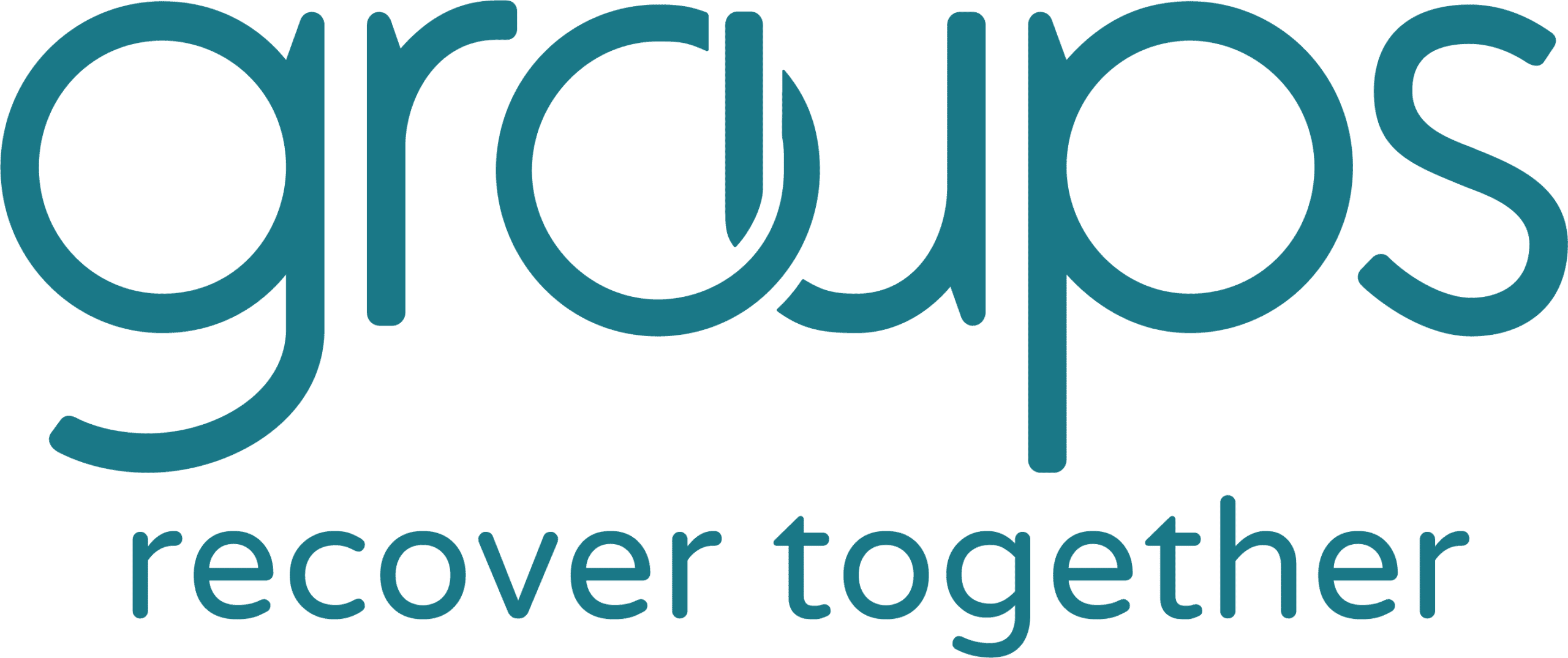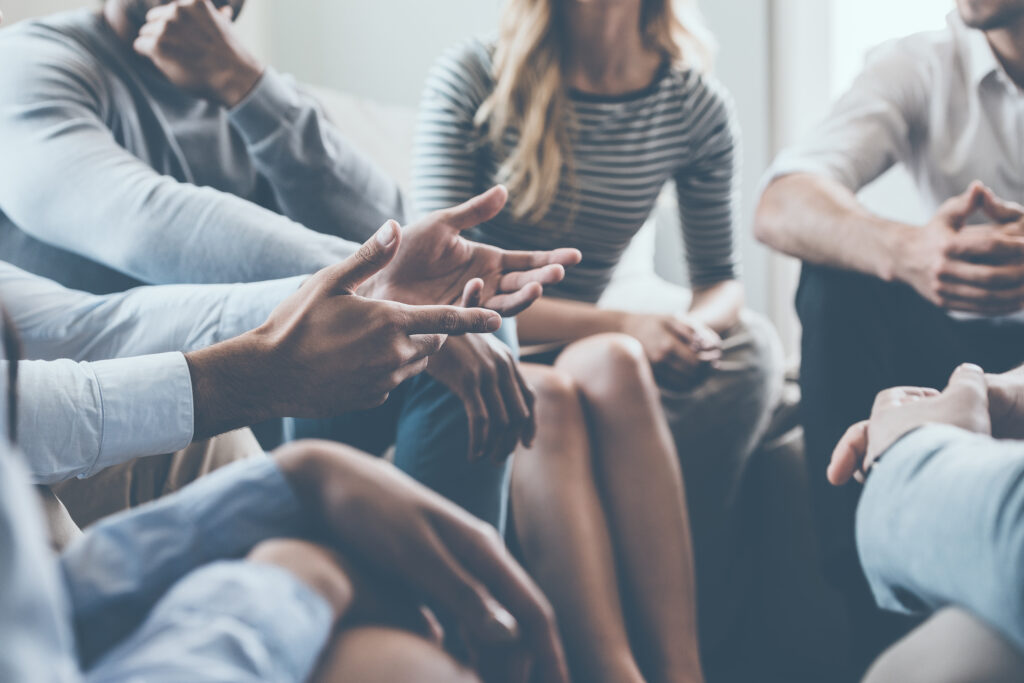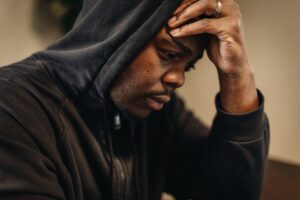Recovering from opioid use disorder (OUD) is about more than not using. For most people, it means making significant changes in their day-to-day life and their relationships. You may need to find resources for food, housing, or employment. You’ll also need to learn new skills for managing stress and regulating your emotions. Support groups can help with all of these things. One of the greatest benefits of support groups is that you’ll meet other people who are on their own recovery journeys. Becoming a part of a community like this can provide the inspiration and motivation you need to stay in recovery for the long term.
Group treatment is most effective when it’s part of a comprehensive treatment plan. Group treatment combined with medication for opioid use disorder (MOUD) is more effective than medication alone. The social support you receive in a peer group can be like a positive form of peer pressure that helps you stick to your recovery goals. Talking with your peers also helps you apply what you’re working on to your life outside of treatment. Medication is helpful because it reduces cravings and withdrawal symptoms. Treatment should also include life-goal assistance to help you meet your needs. When all of these pieces are in place, it’s much easier to envision your life in recovery and take steps toward making it a reality.
In this blog post, we’ll share six tips for connecting with an OUD recovery support group.
6 tips for connecting with a recovery support group for opioid use disorder
Going to a support group is one of the quickest ways to start learning skills and strategies for life in recovery. It gives you a safe place to interact with others and practice interpersonal skills. By listening to other people’s stories, you can see how they’re responding to their own challenges. At Groups, we incorporate different forms of therapy with group sessions so you’re always learning something. We provide education about OUD, the stages of recovery, strategies for managing cravings and stress, and more.
The greatest benefits of group support are things you won’t necessarily get with one-on-one therapy or medication. In individual therapy, you’re only talking about your own experiences. In a group, you get to hear about what other people are going through. You’ll feel like part of a community, and you’ll gain valuable perspective and insight. You may even come out of it with some new friends who really understand you.
To find a support group you like and get the most out of your experience, take the following steps:
- Understand the value of support groups — Support groups help people feel less alone in their recovery process. Both giving support and receiving it are therapeutic. Sharing what you’re feeling with group members allows you to feel seen and understood. Hearing about other people’s experiences can provide a sense of hope that if they could make it through their challenges, you can too. Groups also provide a different type of accountability than individual treatment. In a group setting, showing up to treatment and participating isn’t only for your benefit. It’s a matter of respect for the other group members, too.
- Find the right support group — You’ll be more likely to reap the full benefits of group treatment if you find a group you’re comfortable with. Trust in the group facilitator is necessary for a good experience. You should also find out about the type of treatment provided, what the typical session is like, and what rules you’ll be expected to follow. More treatment programs have become available in online formats. Consider whether you’d rather go to a support group in person or online. You may have more options to choose from if you look at virtual programs.
- Prepare for your first group meeting — Before you go to your first meeting, you might want to spend some time reflecting on your goals for recovery, challenges you’re facing, and what you want to get out of the experience. If you have any questions about the group, write them down and bring them on your first day. It’s common to be a bit nervous or anxious. If you want, you can just listen for the first session or two to get a sense of what the conversation usually sounds like.
- Share what’s on your mind — Talking about your struggles with a new group of people can be hard at first. Participating in a support group requires some vulnerability, which may not feel comfortable. A support group is a safe place to take these first brave steps. Eventually, being open about your thoughts and feelings can lead to self-acceptance, compassion, and personal growth. It can help you rebuild your ability to trust other people as well. You may be surprised to find out that other people have been in the exact same situation as you.
- Build meaningful connections — The most important way to participate in a support group is listening. Your group facilitator may give you some rules or guidelines for group participation. In general, you should be mindful of other people’s boundaries and try to stay on topic. After a few sessions, you’ll start to get to know the other group members. Support groups are a great place to make friends who are supportive of your recovery goals. The organization may provide a way to message each other between group sessions. Otherwise, you can ask other group members if they would mind sharing their contact information so you can stay in touch.
- Maintain long-term group support — It takes time to achieve some stability in your recovery. You may need to stay in a support group for at least a year. Your group will be a lifeline for building healthy habits and resources and for getting through your most challenging moments. The people you meet in your support group can turn into lifelong friends and allies in recovery. When you’re ready to transition out of group, make sure you find out what other resources will be available to you. Plan out what you’ll do if you run into challenges and who you’ll reach out to if you need a higher level of support.
Start your life in recovery and find your people at Groups
Signing up for a support group is a big leap of faith. If you know what you want to achieve and what types of support you need, that will make it easier to find the right recovery community for you. Take your time to research your options and learn about a group’s philosophies before you make a commitment. Some groups have strict definitions of what recovery means, and some aren’t accepting of MOUD as a long-term solution. At Groups, we believe the definition of “recovery” is up to each individual. We’re working to change the conversation around opioid use and end the stigma. If you have any questions or concerns about OUD treatment, please contact us.
Treatment at groups has two main components: Suboxone and support. Our support groups meet once a week, and you’ll be asked to do a urine screen. We do this only to understand where you are in your recovery process — we don’t judge you for using while you’re in treatment. You’ll earn points for every negative screen that you can exchange for rewards of your choice.
During your initial consultation, you’ll talk with a qualified prescriber who can help you figure out if Suboxone is right for you. You’ll also have access to our Recovery Support Specialists who can help with things like phone and internet resources, food, housing, and more.
Are you looking for a support group that’s part of a comprehensive treatment program? Give our Recovery Support Specialists a call today.
We provide treatment across the country — and we’re always expanding. See if we offer care in your state, either online or at one of our 130+ local offices. If Groups doesn’t offer treatment in your area, you can locate other treatment options here.




